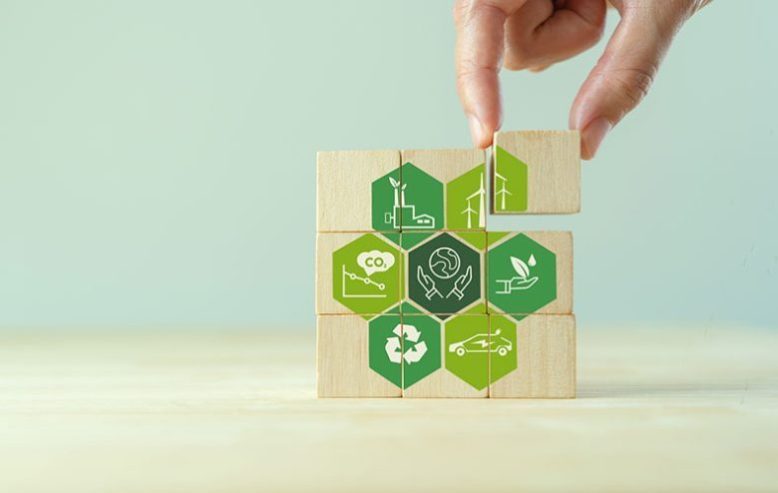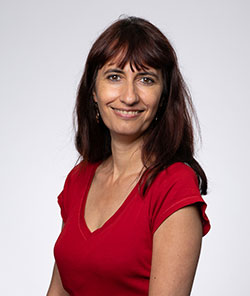Circular economy: your opinion for a 360-degree vision

Published in 2018, France’s experimental circular economy standard takes an international turn. Experts from 97 countries spent several months working on what will become an ISO standard in 2024. It’s time to have your say on these texts, which set out a framework for circularizing production models.
The ecological crisis is reshuffling the deck and forcing us to rethink in depth our ways of consuming, producing and even designing. Alongside regulations, the international response is taking shape with the imminent publication of voluntary standards on the subject, to help economic players reform their models. But first, we need your input: a public inquiry will run until June 11, 2023, to give everyone a chance to have their say on the work being carried out under the aegis of ISO, the body within which AFNOR represents France.
France led the way in 2018 with the publication of the experimental voluntary standard XP 30-901. This text proposes an approach to the circular economy based on seven areas of action:
- sustainable supply
- eco-design
- industrial symbiosis
- functionality economy
- responsible consumption
- extended useful life
- efficient management of end-of-life materials and products.
First three standards under public inquiry

This pioneering text has now changed scale. Shortly after its publication, ISO set up a technical committee (TC) to draw up a voluntary standard, this time at international level, to facilitate reflection by economic players. AFNOR steered the work, with Catherine Chevauché heading the committee. When it comes to the circular economy, everything is moving at high speed,” notes the chairwoman of the ISO/TC 323 technical committee, who is also Circular Economy Director at Veolia. The concepts introduced in 2018 have been reviewed and adapted. The committee drew on the work of the experimental standard, particularly for the section on actions, which aims to implement the circular economy in organizations”. To date, three initial texts are being finalized:
- ISO 59004: terminology, principles and recommendations for implementation ;
- ISO 59010: Recommendations for transitioning business models and value networks ;
- ISO 59020: Measuring and assessing circularity.
You have until June 11 to give your opinion and make your contribution on these three reference systems! They will all be analyzed between now and the end of the year, with the aim of publishing all three texts by early 2024. These will be supplemented by four other standards (ISO 59040, ISO 59014) and two technical reports (ISO 59031 and ISO 59032), currently under development, to provide all stakeholders with a comprehensive standards framework for moving forward. Or how to stop going round in circles with the circular economy!
In the field of the circular economy, this is not the only initiative in which France has distinguished itself by the avant-garde nature of its standards. The star of the Normes 2022 Gold Awards, the AFNOR Spec 2201 guide to the eco-design of digital services, is also set for international success. At AFNOR, Audrey Himmer heads up a commission tasked with representing French players in the ISO/IEC TS 20125 voluntary standard project. This is the perfect tool for all project leaders wishing to circularize the digital economy.
Quatre nouveautés pour faire reconnaître ses bonnes pratiques
Ceux qui en sont déjà à vouloir signaler, sur leur produit ou leur service, qu’ils font œuvre d’économie circulaire ont bien sûr à leur disposition l’évaluation AFAQ Economie circulaire, distribuée sur audit par AFNOR Certification et appelée à évoluer pour intégrer les nouveautés de la future norme ISO.
Sur cette thématique, la filiale du groupe AFNOR propose de nouveaux signes distinctifs :
- pour les réparateurs, le label Qualirépar, en lien avec les éco-organismes gérant ce dispositif d’aide financière à la réparation des produits électroniques
- pour les plasturgistes, la certification NF Matières de recyclage plastiques, signalant un recyclage de qualité
- pour les fabricants de détergents et de cosmétiques, l’écolabel européen, qu’AFNOR Certification distribue désormais sous accréditation COFRAC n°5-0030
- pour tous les fabricants, la gamme vérification de circularité, avec de nouvelles prestations aux côtés de la mention « Robuste, réparable, recyclable ».